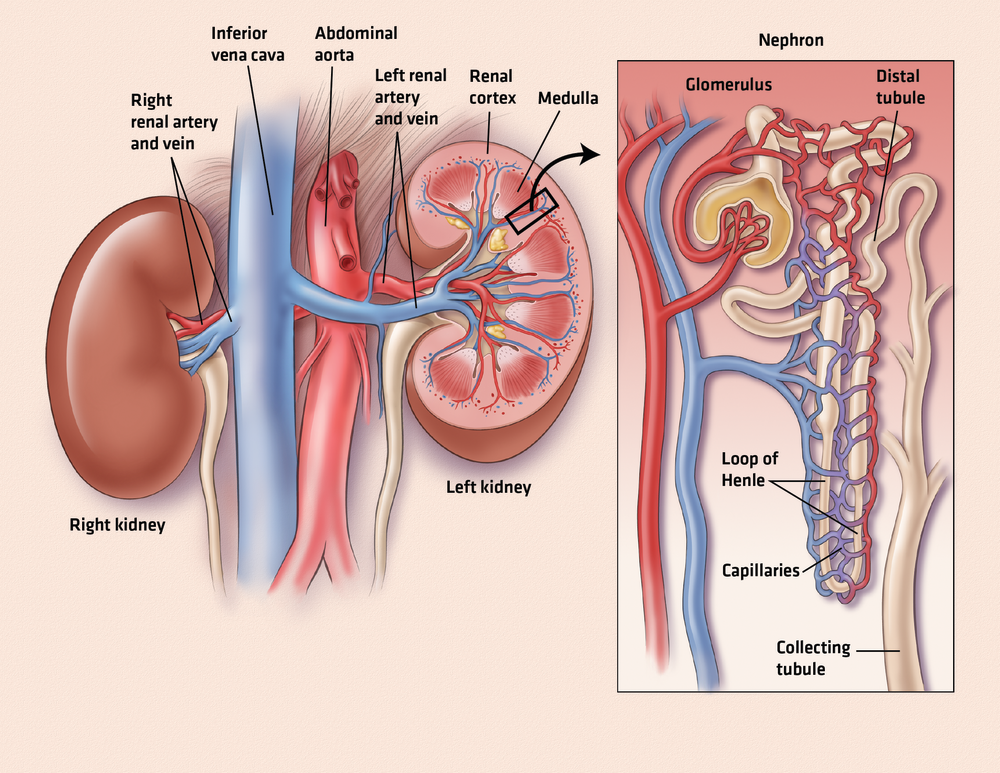Kidney failure, also known as renal failure, is a serious medical condition in which the kidneys are no longer able to function properly. This can lead to a buildup of toxins in the body, as well as problems with fluid balance and blood pressure.

There are two types of kidney failure: acute and chronic. Acute kidney failure occurs suddenly and is usually caused by a specific event, such as an infection or injury. Chronic kidney failure, on the other hand, develops gradually over time and is usually caused by underlying medical conditions, such as diabetes or high blood pressure.
The treatment options for kidney failure vary depending on the type and severity of the condition. In some cases, kidney failure can be temporary and reversible with proper treatment. For example, acute kidney failure may be caused by a urinary tract infection or blockage, which can be treated with antibiotics or surgery. In these cases, the kidneys may be able to recover and return to normal function.
However, in many cases, kidney failure is permanent and requires ongoing treatment to manage symptoms and complications. For example, chronic kidney failure caused by diabetes or high blood pressure can only be managed with medications, diet changes, and lifestyle modifications. In these cases, the goal of treatment is to slow down the progression of the disease and prevent further damage to the kidneys.
The most common and effective treatment for kidney failure is dialysis, which is a process that uses a machine to filter the blood and remove waste products and excess fluids. Dialysis can help to manage symptoms and complications of kidney failure, but it is not a cure. It must be performed on regular basis until a kidney transplant is done.
A kidney transplant is considered as a cure for kidney failure as it replaces the malfunctioning kidneys with a healthy one from a donor. The success rate of kidney transplantation is high and most people are able to lead normal lives after the procedure. However, transplant recipients must take immunosuppressant drugs for life to prevent rejection of the new kidney.
Prevention is always better than cure. To prevent kidney failure, it is important to control underlying medical conditions, such as diabetes and high blood pressure, and to make lifestyle changes to promote kidney health. This includes eating a healthy diet, maintaining a healthy weight, and getting regular exercise.
In conclusion, kidney failure can be a serious and life-threatening condition, but with proper treatment, it is possible to manage symptoms and prevent further damage to the kidneys. However, in most cases, kidney failure cannot be cured permanently but can be managed with dialysis and kidney transplantation. The best way to prevent kidney failure is to maintain a healthy lifestyle and to control underlying medical conditions.
